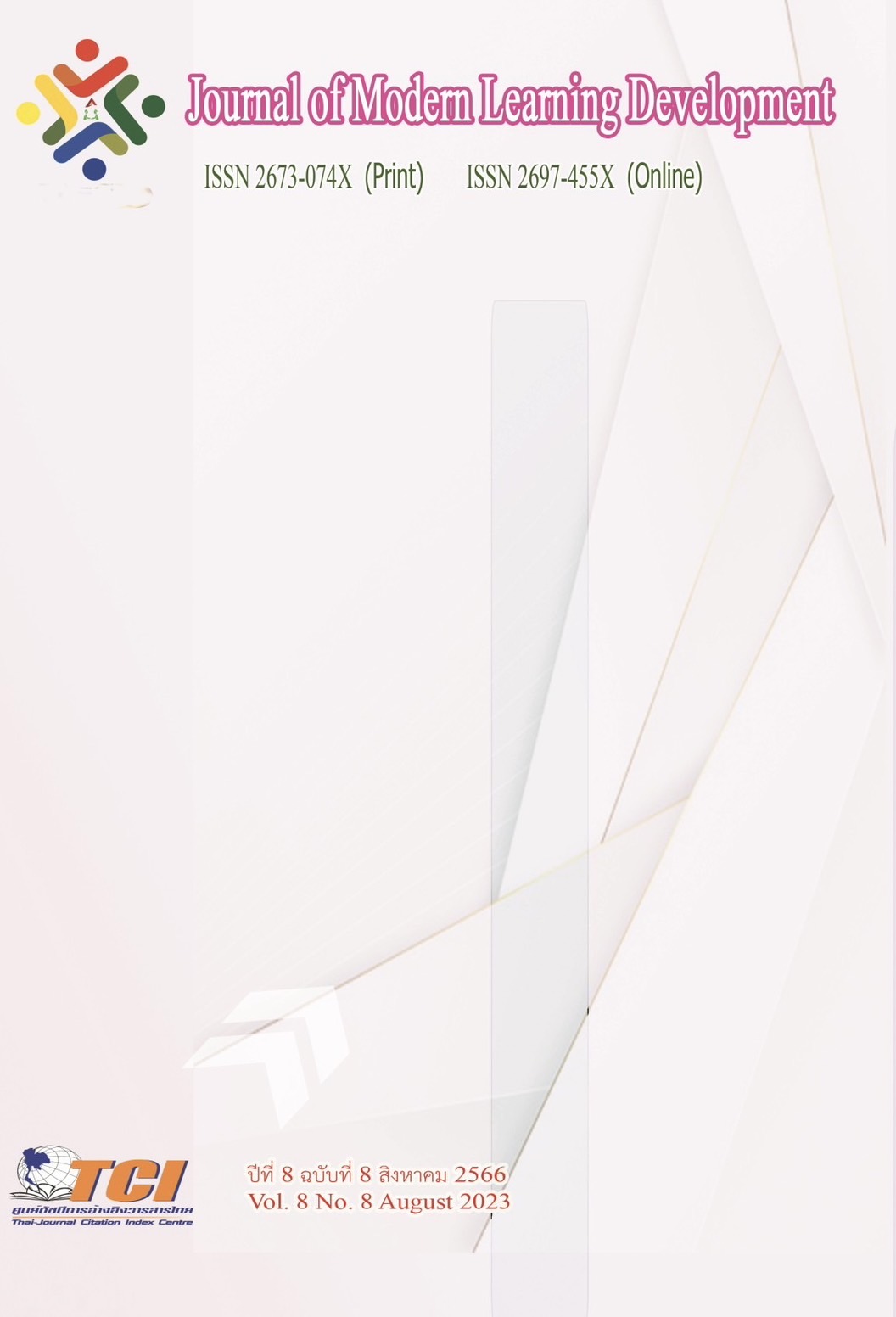Dual Education Management and Building Skills for New Future
Main Article Content
Abstract
Dual education management and building skills for new future require cooperation from relevant parties to drive the entire system as an active education management in the 4.0 era for institutions in higher education with educational concept. By dual education management in order to build skills for skilled workforce, technology, skills, or new tools. There was extensive effort to create expertise. Although technology and new skills seem to endlessly influx and new technologies also unpredictably arise in the market, everyone can prepare for career success by focusing on fundamental skills in the time of abrupt change or “21st century skills”. These necessary basic skills can be developed and adapted, cooperation from enterprises are needed. External organizations can coordinately perform their roles and duty with responsibility to drive and distribute educational opportunity accordingly to dual vocational training standard. The Office of the Vocational Education Commission published the announcement on dual vocational training standard 2020 as a framework for an effective dual education management in accordance to Thai Qualifications Framework for Vocational Education and each level of vocational qualification aiming for graduates to gain quality and standard accordingly to the standard set for vocational education in subjects and areas of study.
Article Details
References
กระทรวงศึกษาธิการ. (2564). รายงานการประเมินผลการจัดการอาชีวศึกษาระบบทวิภาคี. ออนไลน์. สืบค้นเมื่อ 5 กันยายน 2565. แหล่งที่มา: https://bme.vec.go.th/Portals/30/DOWNLOAD/bme2/ Y65/ReportDvec.pdf?ver=2021- 12-01-154659-437
สำนักงานเลขาธิการสภาการศึกษา. (2560). แผนการศึกษาแห่งชาติ ฉบับที่ 12 (พ.ศ. 2560-2579). กรุงเทพมหานคร: กระทรวงศึกษาธิการ.
สำนักงานคณะกรรมการการอาชีวศึกษา. (2560). แผนพัฒนาการอาชีวศึกษา พ.ศ.2560-2579. กรุงเทพมหานคร: สำนักงานคณะกรรมการการอาชีวศึกษา.สำนักงานคณะกรรมการการอาชีวศึกษา. แผนพัฒนาการอาชีวศึกษา พ.ศ.2560-2579. กรุงเทพมหานคร: สำนักงานคณะกรรมการการอาชีวศึกษา.
สำนักงานคณะกรรมการการอาชีวศึกษา. (2560). แผนพัฒนาการอาชีวศึกษา พ.ศ.2560-2579. กรุงเทพมหานคร: สำนักงานคณะกรรมการการอาชีวศึกษา
กระทรวงอุตสาหกรรม. (2559). ยุทธศาสตร์การพัฒนาอุตสาหกรรมไทย 4.0 ระยะ 20 ปี (พ.ศ. 25601052579). ออนไลน์. สืบค้นเมื่อ 5 กันยายน 2565. แหล่งที่มา: https://www.nstda.or.th/th/nstda-doc-archives/thailand-40/11623-oiethailand-4
พระราชบัญญัติการอาชีวศึกษา. (2551). พระราชบัญญัติการอาชีวศึกษา พุทธศักราช 2551. ราชกิจจานุเบกษา, หน้า 1-24.
สำนักงานเลขาธิการสภาการศึกษา. (2560 ข). รายงานการติดตามและประเมินผลการจัดการอาชีวศึกษาระบบทวิภาคี. กรุงเทพมหานคร: บริษัท พริกหวานกราฟฟิค จำกัด.
อิสรียา ออสุวรรณ. (2559). แนวทางการบริหารสถานศึกษาอาชีวศึกษาเอกชนระบบทวิภาคี ในเขตกรุงเทพมหานคร. วิทยานิพนธ์ปริญญาครุศาสตร์มหาบัณฑิต สาขาวิชาบริหารการศึกษา คณะครุศาสตร์. บัณฑิตวิทยาลัย: จุฬาลงกรณ์มหาวิทยาลัย.
เพ็ญจันทร์ สินธุเขต. (2560). การศึกษายุดนี้ (ยุคดิจิทัล): Thailand 4.0. ประชุมวิชาการระดับชาติ คณะครุศาสตร์ มหาวิทยาลัยราชภัฏลำปาง. ลำปาง: มหาวิทยาลัยราชภัฏลำปาง.
สำนักงานคณะกรรมการพัฒนาการเศรษฐกิจและสังคมแห่งชาติ. (2559). แผนพัฒนาเศรษฐกิจและ สังคมแห่งชาติฉบับที่สิบสอง พ.ศ. 2560 -2564. ออนไลน์. สืบค้นเมื่อ 5 กันยายน 2565. แหล่งที่มา: https://www.nesdc.go.th/ewt_dl_link.php?nid=6422
สำนักงานศึกษาธิการภาค 9. (2563). รายงานผลการติดตามและประเมินผลการดำเนินงานตามนโยบาย และยุทธศาสตร์ ของกระทรวงศึกษาธิการ ในพื้นที่รับผิดชอบของสำนักงานศึกษาธิการภาค 9 รอบที่ 2 ประจำปี งบประมาณ พ.ศ. 2563. ออนไลน์. สืบค้นเมื่อ 5 กันยายน 2565. แหล่งที่มา: http://www.reo9.obec.in.th/gis/57000001/files/PostNote/20201109084237UVsvmCy..pdf
สำนักงานคณะกรรมการการอาชีวศึกษา. (2562). หลักเกณฑ์และแนวปฏิบัติการจัดการอาชีวศึกษา ตามหลักสูตรประกาศนียบัตรวิชาชีพ และหลักสูตรประกาศนียบัตรวิชาชีพชั้นสูง เรื่องที่ 8 การจัดการอาชีวศึกษาระบบทวิภาคี. กรุงเทพมหานคร: สำนักมาตรฐานการอาชีวศึกษาและวิชาชีพ สำนักงานคณะกรรมการการอาชีวศึกษา.
สุคนธ์ สินธพานนท์. (2560). ครูยุคใหม่กับการจัดการเรียนรู้ สู่การศึกษา 4.0. กรุงเทพมหานคร: ห้างหุ้นส่วนจำกัด 9119 เทคนิคพริ้นติ้ง.


